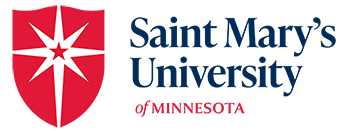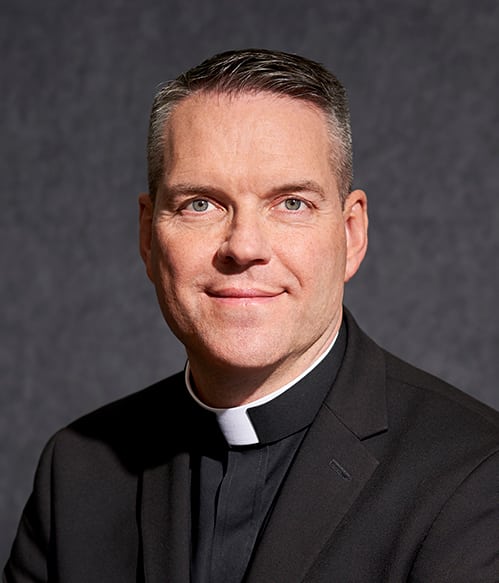Saint Mary's Newsroom
Campus ConnectionAn update from the president to alumni and parents
Mailroom hours through holiday
The Winona Campus mailroom will be closed on the university holidays of Friday, July 2, and Monday, July 5. Regular summer hours (8:30 a.m. to 3:30 p.m., Monday through Friday) will resume on Tuesday, July 6. As courier service is scheduled on Monday, Wednesday, and Friday, all outgoing mail must be delivered to the mailroom or the Central Services Office by noon on Tuesday, June 29, or it will not post until Wednesday, July 9. Please contact Neal Nixon, mailroom coordinator and Student Life assistant, at nnixon@smumn.edu if you have any situations we need to work around, and he will figure out a way.
Web services coverage July 2-11
The web developer and web support staff from the Marketing and Communication Office will be out of the office July 2-11, so updates to the website will be on hold until their return. In the case of an emergency between July 2-11, please indicate your timeline needs as you fill out a web request at smumn.edu/mcservices, and we will reach out to an external vendor if needed. Thank you for your patience during this period.
Fieldhouse summer hours announced
The Winona Campus Gostomski Fieldhouse and gymnasium summer hours are Monday, June 28, through Thursday, Aug. 26, 6:30 a.m. to 8:30 a.m.; 11 a.m. to 1 p.m.; and 4 to 7 p.m. (Monday through Friday only). The space will be closed July 5 in observance of the holiday.
MCA offers July Watercolor Workshops for older adults
WINONA, Minn. — Minnesota Conservatory for the Arts (MCA) will offer two Watercolor Workshops for adults ages 55 and older:
- Wednesday, July 14, from 10 a.m. to 12:30 p.m.
- Thursday, July 15, from 1 to 3:30 p.m.
In these one-day workshops, participants will explore basic watercolor techniques, including masking and wet-on-wet application, and learn about various painting supplies while connecting with one another. Step-by-step instructions will lead to creating and finishing a floral piece participants can take home. Community members are invited to sign up for one or both sessions.
Each workshop will be taught by Faye Schoen and costs $24 (which includes supplies). Visit mca.smumn.edu to register.
About the artist
Faye Schoen has taught art and craft classes for all ages from Girl Scout troops to nursing home residents and adult community education classes. As a special education teacher, she employed her art skills to motivate reluctant learners while challenging them to explore their creative side. She is a member of River Arts Alliance, Winona Art Center, and La Crosse Society of Arts and Crafts. In studying nature to paint or draw it, Schoen believes we learn to appreciate the beauty all around us and so reap the benefits (body, mind, and spirit) of making art.
About MCA
The Minnesota Conservatory for the Arts (MCA), an affiliate program of Saint Mary’s University of Minnesota, is a nonprofit community arts school offering programming in dance, music, visual art, and theatre. Classes, lessons, workshops, and camps are offered for students of all ages from birth through older adults at the Valéncia Arts Center. For more information about MCA or Galleria Valéncia, visit mca.smumn.edu, email mca@smumn.edu, or call 507-453-5500.
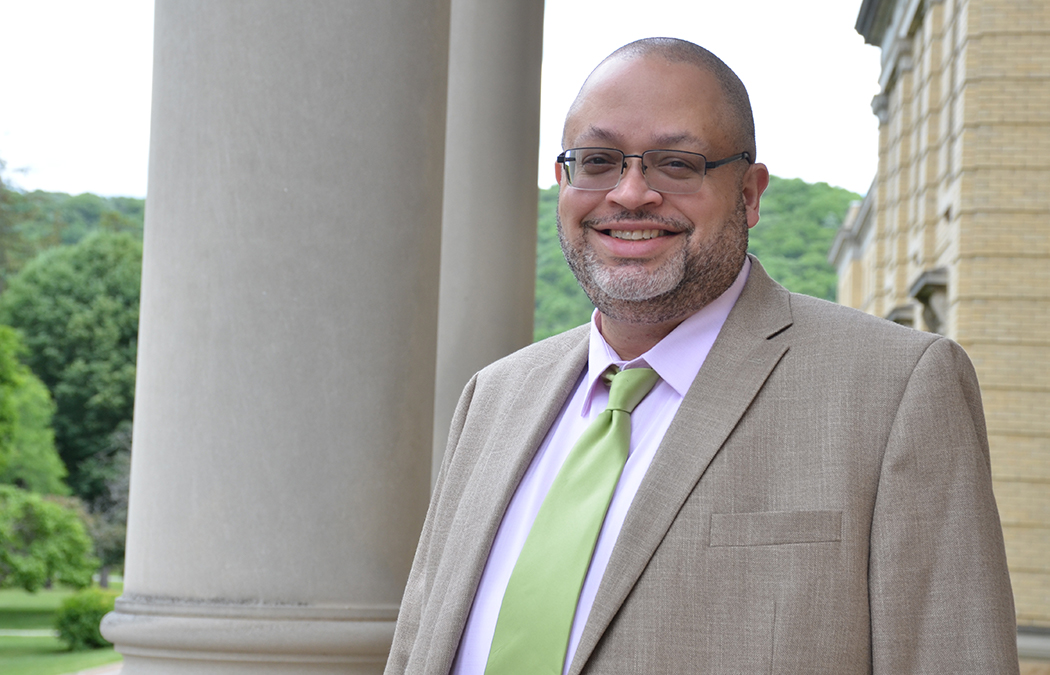
Inclusion, human dignity focus of new position at Saint Mary’s
Stepping into the newly created position of vice president for inclusion and human dignity, Leon Dixon says he’s not one to shy away from a challenge. He is ready and well-prepared to advance Saint Mary’s goal to develop and foster a more inclusive university community that emphasizes human dignity.
“Anywhere you go, universities exist to serve the students,” he said. “So that’s why I’m here — to serve them.”
A particularly meaningful title
At many colleges and universities, and other industries for that matter, similar roles hold the title of diversity, equity, and inclusion officer. For Dixon, having the words human dignity in his title is crucial.
“Usually, chief diversity officers deal a lot with demographics and try to make sure demographic needs are accommodated for and accounted for. Well, our students, our society deserves more than just demographic treatment. We’re more than just figures to check off in a box,” he said.
Dixon says in today’s society, diversity, equity, and inclusion can be “loaded words” that can lead to fractures among people. However, he says people can’t disagree when speaking about human dignity.
“Human dignity, that’s a God-given right. It’s not a mandated right; it’s not written in by law. This is something that God mandates — that everybody is treated with dignity and respect. You can’t divide that,” he said. “I don’t care what faith you practice … We all believe that.”
A year of pain and division
Discussions of inclusion and diversity have become more prevalent, and more sensitive in the last year after high-profile killings of Black men and women at the hands of law enforcement, as well as the evidence pointing to vast disparities in everything from health care to jobs to the economic impact witnessed throughout the COVID-19 pandemic. However, Dixon sees the current climate as an opportunity to lean into dialogue and change.
“I really believe the only way you address these kinds of conversations, these kinds of issues, is to actually have conversations,” Dixon said. “Once we get to that place where we feel as though we have to voice our opinion, whether it’s in the affirmative or the negative, it’s still a good place to be, because that’s where the learning comes.”
Dixon says the discussions and exchange of opinions has to be continual for sustainable change to happen.
“You know, your opinion is yours, and you can get mad and be like a kid on the playground, ‘I’m taking my stuff and going home.’ But as long as you come back to the playground again tomorrow, that’s what is most important, because sooner or later, we’re going to get past the emotional part and really get into who and what the conversation should be about and who we want to be.”
Being mindful of the last year, as well as the recent recognition of Juneteenth, can be a way to continue to move the conversation forward, Dixon said.
“What it does give us is an opportunity to actually have a conversation about how we can prevent this from happening again. How can we recognize and lift up those who are feeling marginalized? How can we find a way for law enforcement and communities of color and communities of low economic means to coexist? We need systems of law and order for a society to function … but we also need law enforcement to work with people they are serving instead of controlling them.”
Building a more inclusive campus and university
Building a hospitable university can take many shapes, but Dixon says having a community that is close and intentional in its actions is vital.
“We’ve got a lot to do, we have a long way to go, but we have to start somewhere,” Dixon said. “And it starts with us being intentional about our actions, intentional about conversations, and intentional about building a better place.”
Adhering to the school’s Lasallian Catholic tradition, which places an emphasis on concern for the marginalized and social justice, will also play a role in conversations about inclusion and human dignity.
“We’re Lasallian Catholics, it’s not an either or proposition,” Dixon said. “At the end of the day, we’re all guided by the Holy Spirit that keeps us moving and pushes us forward.”
He says he is encouraged that he believes most people in the university community are not afraid of changes that may need to be made.
“That’s a beautiful place to be in, because so often we know change is hard on most people,” Dixon said. “That makes my job easier. But more importantly, it creates an environment so these conversations can be the catalyst for what we can become.
However, to be successful, everybody in the university community needs to take part in the work.
“When we do inclusion work on campus, it’s important that everybody knows they have a stake in this. While your background or demographic profile are important, every person comes with a unique and particular history. All of these aspects of each person’s life are necessary ingredients for a vibrant and hospitable community where all are welcome and supported,” Dixon said.
The work begins
To implement change, Dixon will engage the entire university community. He plans to listen and assess before prioritizing the work that needs to be done.
“I need to hear firsthand where the problem areas are, or where the opportunity for growth is, or just what everybody is feeling,” Dixon said. “I need to know this because you can’t craft a plan for the people if you’re not with the people and doing it with love for the people.”
Measures of success
How students discuss their experiences at Saint Mary’s will be the best way to gauge whether the environment is inclusive.
“What we don’t want is that statement where (students) say, ‘This isn’t the place for me because I don’t feel valued or respected … And it can be just one student and we fail. These are things I don’t ever want to hear. These are the things that are non-negotiables,” Dixon said. “I’m here to help create an environment where we can all thrive.”
“If any student ever feels they don’t belong for reasons other than being homesick, we’ve got to work harder. I’ve got to work harder.”
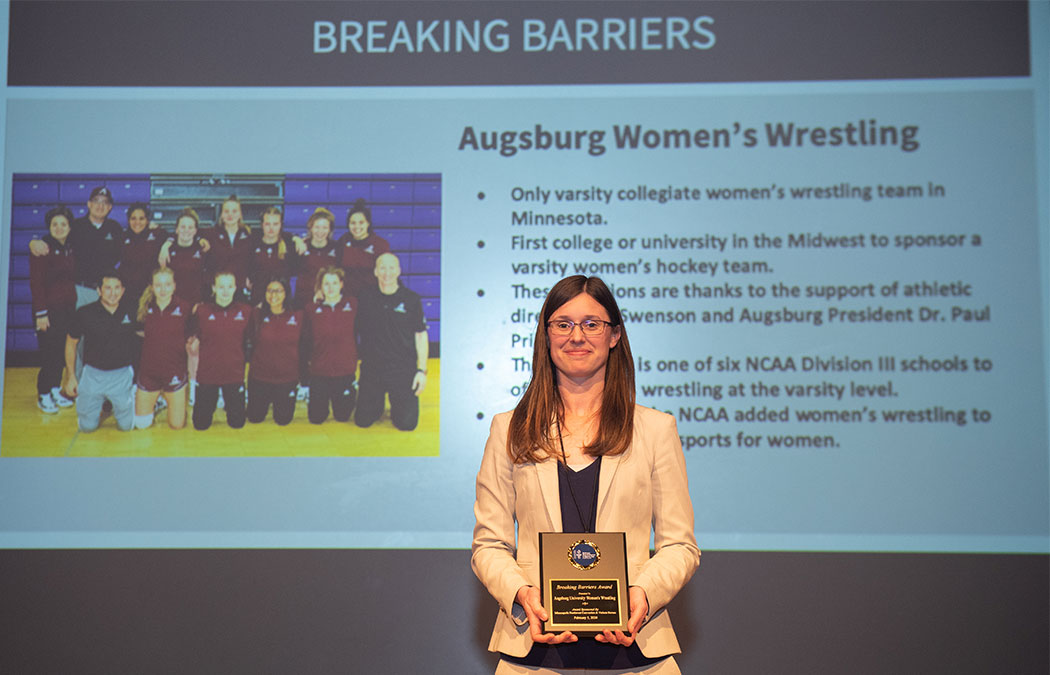
DBA student applies coursework to her career
At Augsburg University in Minneapolis, where she has worked since 2008, Kelly Anderson Diercks is the associate athletic director.
At home with her husband, Matt, she has three children, Andi, Bo, and Riley.
At Saint Mary’s University, she’s working towards a Doctor of Business Administration (DBA) degree, studying job satisfaction for women later in their careers.
And she gets it all done with what a faculty member describes as “1000 volts of positive energy.”
Diercks says what she learns in the DBA program has been immediately applicable to her work in athletics, especially her role as the deputy Title IX director for her department.
“The Saint Mary’s DBA faculty encourage students to research, write about, and do projects during our coursework that can either directly apply to our dissertation or to our professional work,” Diercks says. “Being someone who works in higher education, and intercollegiate athletics specifically, I was often interested in topics that were very different than my classmates, and the DBA faculty were incredibly open to my explorations of these interests. I was even able to write a paper on the economics of Title IX, and it ended up being one of the most enjoyable papers I’ve ever written.”
While she researches late-career women leaders for her dissertation, Diercks is also committed to empowering the next generation of women who work in sports. She is on the organizing committee for Minnesota’s National Girls and Women in Sports Day and a member of the group Women Leaders in College Sports, and has also previously served as chair of the NCAA Ethnic Minority and Women’s Internship Selection Committee.
Diercks chose Saint Mary’s because of the in-person classes and the management and strategy track, and says she is grateful that the program “continues to push me to be a stronger writer and critical thinker.”
Photo caption: Dierks accepts the 2020 Breaking Barriers Award on behalf of Augsburg University women’s wrestling for Minnesota’s National Girls and Women in Sports Day.
By Maura Sullivan Hill
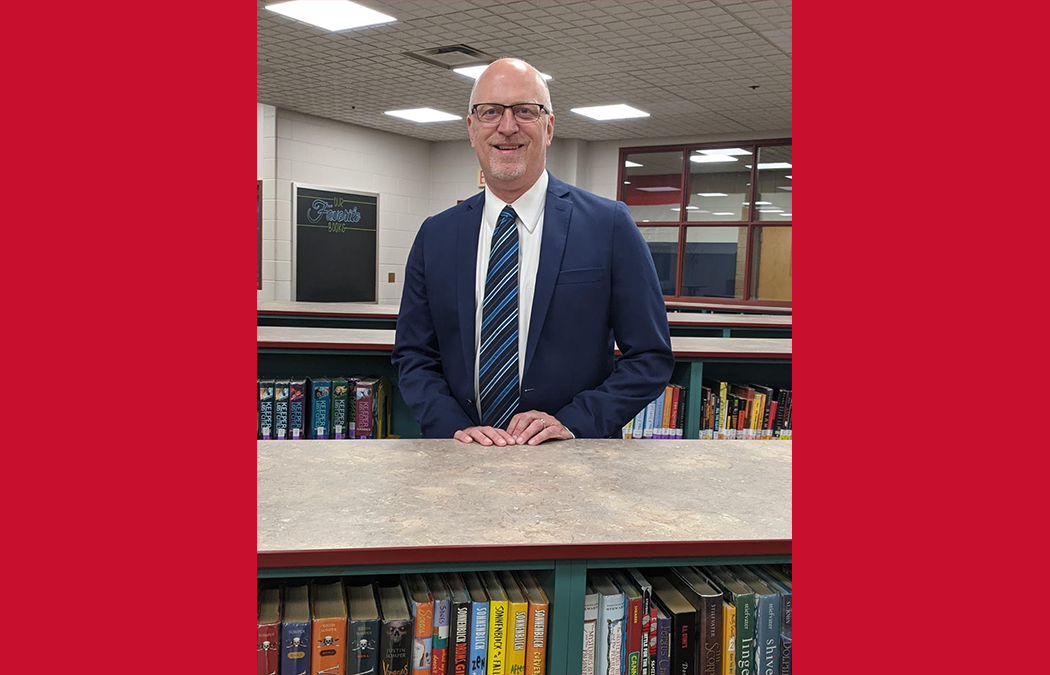
Saint Mary’s graduate follows his own advice, lands superintendent position
By Tom Brandes
Mike Neubeck D’05 isn’t sure what his ideal job would be, but it would definitely involve helping people and having fun. The longtime educator and administrator will undoubtedly strive to do both those things as he begins his new job as superintendent of Byron Public Schools in Byron, Minn.
Neubeck has worked at a number of public and private schools throughout the Twin Cities area over the past 30 years; at his first teaching stop at Epiphany School in Coon Rapids, he told his seventh- and eighth-grade students to follow their dreams. A few years later, Neubeck took his own advice and left education to become a professional baseball umpire. Later he resumed his education career, but worked as an umpire for the St. Paul Saints for 23 years.
“Helping people and having fun need to be part of anything I do. Some days it’s not fun and it depends on what happened in the lunchroom that day,” says Neubeck. “When I returned to teaching, I received my master’s degree from the University of St. Thomas and my K-12 principal certificate from Saint Mary’s because I wanted to become a principal so I could help others.”
After finishing his licensure work, a friend who also went through Saint Mary’s certificate program suggested they get their doctoral degrees in education. With another friend from the licensure program, plus a fourth they met early on, the foursome went through Saint Mary’s Education Doctoral Degree program in five years, taking most of their classes together as a mini cohort. One of the four, Joe Libby D’05, will also be a first-year superintendent (Sibley East) this fall.
“I really liked the flexibility of Saint Mary’s Education Doctoral Degree program, topics on leadership, and how they balanced classwork with our work schedule,” Neubeck said. “The instructors were awesome, and the highlight of the program was the people I met in class. It was great to build relationships and learn what other districts are doing.”
For Neubeck, the “why” of education is helping kids and families, and the reward is seeing them be successful. Eventually, Neubeck realized he could help a whole community if he became a school district superintendent. When he applied for the superintendent position with Byron public schools near Rochester, a woman in the community reached out to tell him it’s a great area and to contact her if she could help.
“She saw my name on an interview list and realized I was her seventh-grade teacher at Epiphany School. What a coincidence,” says Neubeck. “I asked how her kids were doing in school, how they liked the school and district, and if they feel they belong. I want to help people feel they belong and aren’t just part of the school.”
Neubeck is excited about his new job, describing Byron Public Schools as a growing and very progressive 2,300-student district with four schools. The schools provide a pathway for students’ career interests, including medicine, business, industrial, law, police and fire, and offer mentors and outside experience. The district also offers community service options that teach the value of giving back to the community.
In another coincidence, the Byron superintendent Neubeck will replace, Dr. Joey Page, also received his Ed.D. from Saint Mary’s. While he’ll miss being in the classroom, Neubeck’s office is in the district office building that also houses the pre-school program, so he gets to “hang out with preschoolers.” Neubeck admits he doesn’t know what he doesn’t know, but believes Saint Mary’s has prepared him well.
“I’d absolutely recommend Saint Mary’s. My coursework really challenged me to reflect on where I was as a leader and what kind of leader I wanted to be,” Neubeck added. “I really enjoyed my experience at Saint Mary’s. It helped me get where I am today and I look forward to putting it into practice as district superintendent”
In the news
Dr. Kate Soucheray, a Catholic author, speaker, former therapist, and Saint Mary’s alumna, spoke about an upcoming multicultural sensitivity training program she is hosting at Saint Mary’s Twin Cities Campus on Relevant Radio. Dr. Soucheray received her master’s degree from the Marriage and Family Therapy program and her Doctorate in Educational Leadership. Hear more about her upcoming programming, which she has also invited our new vice president for inclusion and human dignity, Leon Dixon, to also take part in planning. Her portion is second on the program lineup.
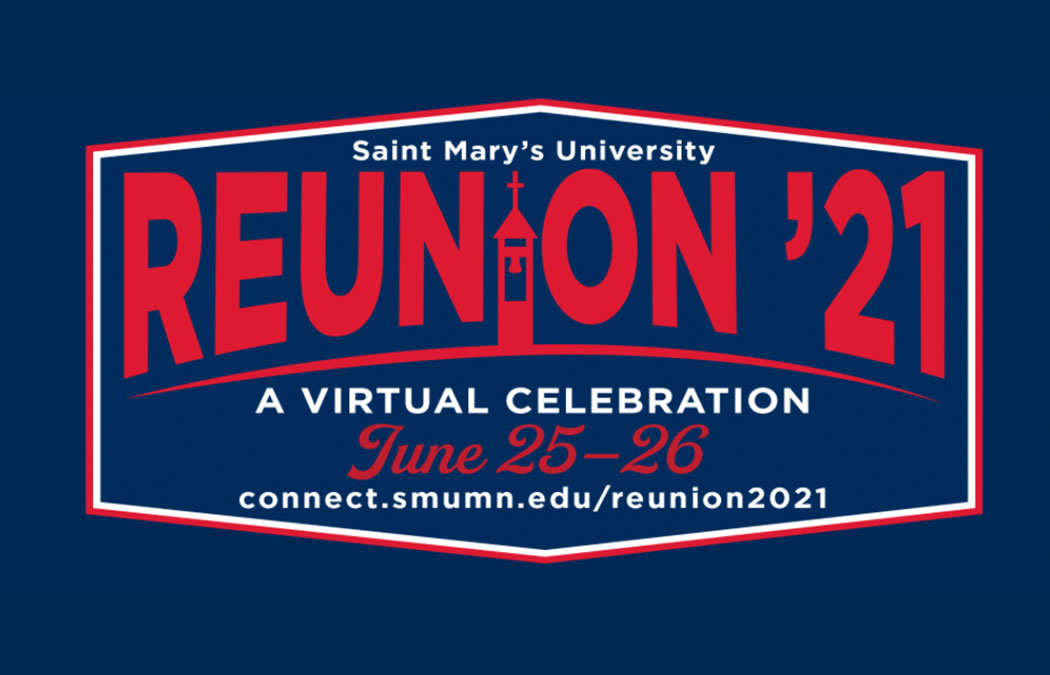
Reunion Weekend 2021 is June 25-26
This Friday and Saturday, Saint Mary’s University will celebrate Reunion Weekend 2021.
To follow state and federal COVID-19 guidance, the event will not be held on campus this year and will be held virtually instead.
The online event offers plenty of ways to connect with fellow alumni, including anniversary and memorial programs for the classes of 1970 and 1971, numerous campus tours, an art session, and the alumni awards ceremony.
Alumni wanting to attend the event can register online. We hope you will consider joining the virtual celebration of Saint Mary’s and its alumni to maintain those valuable connections.
